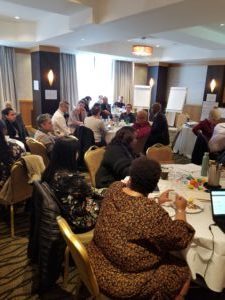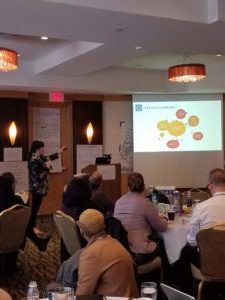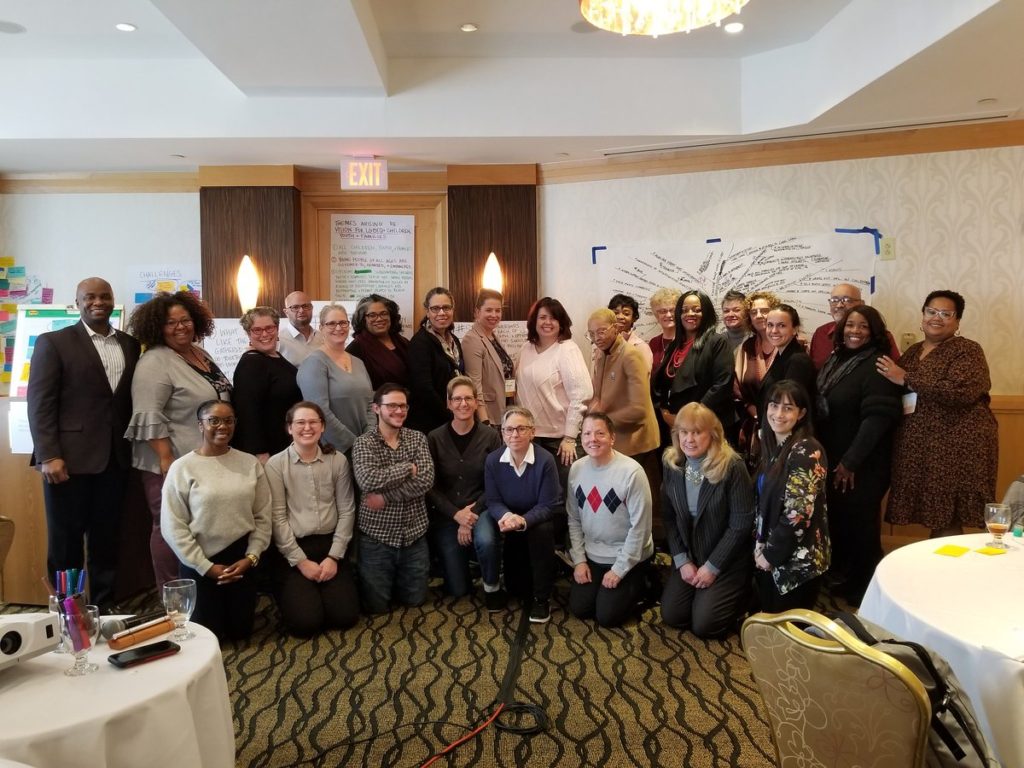 On February 26th and 27th, CSSP’s getREAL initiative collaborated with core partner Family Builders to host the convening Threats and Opportunities to Supporting LGBTQ+ Children, Youth, and Families Involved with Child Welfare Systems. This dynamic two-day meeting brought together child welfare professionals, leaders from various faith communities, data experts, consultants, policy specialists, advocates, attorneys, researchers, scholars, and artists to address the most pressing challenges and the brightest opportunities for LGBTQ+ children, youth, and families who are involved in the child welfare system.
On February 26th and 27th, CSSP’s getREAL initiative collaborated with core partner Family Builders to host the convening Threats and Opportunities to Supporting LGBTQ+ Children, Youth, and Families Involved with Child Welfare Systems. This dynamic two-day meeting brought together child welfare professionals, leaders from various faith communities, data experts, consultants, policy specialists, advocates, attorneys, researchers, scholars, and artists to address the most pressing challenges and the brightest opportunities for LGBTQ+ children, youth, and families who are involved in the child welfare system.
Reflection on the current legislative climate makes it clear that strong partnerships and innovative strategies are among the key ingredients necessary to equip child welfare systems and affirming faith groups to support LGBTQ+ children, youth, and families across the political landscape. The focus on partnerships and relationships needs to become elevated in order to move this work forward. Tanya Rollins, Disproportionality Manager of the Texas Department of Family and Protective Services in one panel, shared that those working within child welfare “need the advocates to keep pushing,” because that is what leads to progress.
Similarly, relationships are at the foundation of the work some affirming faith leaders and providers are doing nationwide to challenge the daunting misconception that faith and the LGBTQ+ community can’t work hand-in-hand. As part of the preparation for this convening and the longer term vision for ways in which the faith community and its partners can work more closely with the child welfare system, CSSP issued its latest publication, Supporting All Our Values: How Publicly Funded, Faith-Based Child Welfare Providers and Non-Discrimination Laws Can Promote Well-Being.
Clergy from the national organization of The Fellowship of Affirming Ministries (TFAM) joined together for a captivating discussion on the importance of forming strong partnerships with affirming faith leaders and providers. The panelists also shared their strategy for building relationships with LGBTQ+ youth, emphasizing that central to their approach is the practice of radical inclusivity and healing trauma—especially faith-based trauma.
“We knew that if there was a safe space for them to come, we knew there was a possibility that we could save one kid, one person, one teenager, one baby….But what we had to do was we had to deal with the trauma first.”
—Twanna Gause, Prophet/Pastor, The Fellowship of Affirming Ministries (TFAM)
The second day of the convening featured a presentation on the opportunities and challenges ahead for LGBTQ+ children, youth, and families as it relates to implementation of the Family First Prevention Services Act. This was followed by sessions and conversations which deep-dived into what it will take for child welfare systems nationwide to rise up to the challenge of implementing this legislation in a way that both is culturally responsive to LGBTQ+ children, youth, and families, and does not further contribute to the disproportionally negative outcomes they face when they come into contact with child welfare systems.

“Family First is an opportunity for child welfare systems to move and implement a new vision for what child welfare can look like and how child welfare serves children and families.”
—Alex Citrin, CSSP Senior Associate
The getREAL convening confirmed the need for and existence of a what CSSP’s Bill Bettencourt calls a “network of accomplices”—child welfare experts, advocates, and policy makers who are invested in advancing policies and practices that protect and affirm LGBTQ+ children, youth, and families. Reflecting on current data that as much as 20 percent of youth in child welfare identify as other than heterosexual and that the majority of these youth are youth of color, participants focused on the importance of ensuring their work in healing addressed all aspects of identity for youth and included assessing their faith experience and ways in which that aspect of their life can be part of their healing and well-being. The conversations and ideas generated by the participant—each of whom brought to the table their unique experiences, diverse backgrounds, and expertise—will help determine future projects, initiatives, and efforts of getREAL. Together we will #SeeChange.
See more about the convening by viewing CSSP’s new hashtag, #SeeChange.
E Feinman is a Program & Research Assistant at CSSP.
